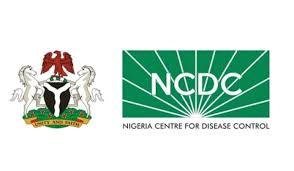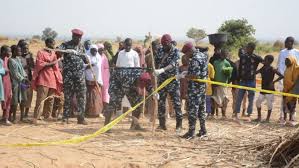
The Nigeria Centre for Disease Control and Prevention (NCDC) has called on state governments to intensify efforts toward building stronger public health emergency preparedness and response systems, as part of ongoing reforms to enhance national health security.
The appeal was made on Monday in Abuja during the unveiling of the Nigeria Health Security Reform Implementation Initiative (NHSRII) State Emergency Preparedness and Response Action Plan, a programme aimed at improving subnational capacity to prevent, detect, and respond effectively to health and climate-related emergencies.
Public health crises and climate-induced disasters, the agency noted, are becoming increasingly complex and interconnected—placing significant strain on Nigeria’s health systems and reversing progress toward achieving the Sustainable Development Goals (SDGs). The ability to anticipate, adapt, and respond effectively, it stressed, remains critical to mitigating their impact on communities.
The State Emergency Preparedness and Response (EPR) Plan, supported by the World Bank, serves as a roadmap for strengthening epidemic preparedness, coordination, and health security across Nigeria’s 36 states and the Federal Capital Territory. Each state is expected to adapt the framework to its unique context and local realities while aligning with national standards.
Speaking at the event, NCDC Director-General, Dr. Jide Idris, said that major outbreaks such as Ebola and COVID-19 often begin at the community level, where response mechanisms are weakest. He emphasized the need for states and local governments to assume a more proactive role in early detection and rapid response.
“This is why we must build capacity at the subnational level,” Idris said. “Viruses and other public health threats typically emerge from within communities. If states are not equipped to mount effective responses, national efforts will remain limited. The new framework helps guide decision-making and coordination at that level.”
He added that the action plan takes into account the unique characteristics of each state — including cultural, linguistic, and infrastructural differences, to ensure tailored, effective responses. States are expected to review the framework, provide feedback, and collaborate with the NCDC to finalise implementation strategies.
“The framework outlines clear and practical policy actions for states and partners under the One Health approach,” Idris explained. “It is intended to strengthen coordination and ensure that preparedness does not begin only when outbreaks occur.”
Also speaking, Chairman of the Forum of Health Commissioners, Dr. Oyebanji Filani, commended the NCDC for fostering collaboration between federal and state institutions. He said the plan underscores the importance of early warning systems and state-level investments in preparedness infrastructure.
“Preparedness must not wait for an outbreak,” Filani noted. “States have a responsibility to act early, detect warning signals, and contain potential threats before they escalate.”
The meeting concluded with a shared commitment from federal and state representatives to deepen collaboration and ensure that the new framework translates into practical, sustained action at the grassroots level, where the first line of defence against public health emergencies often begins.



